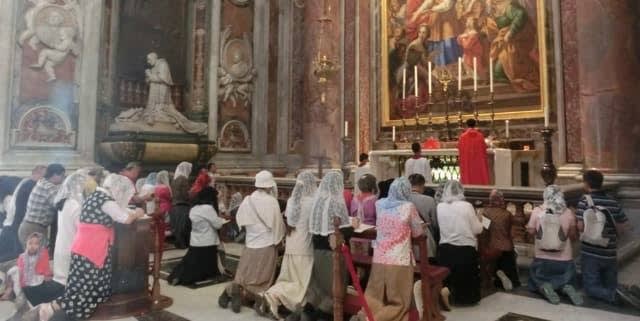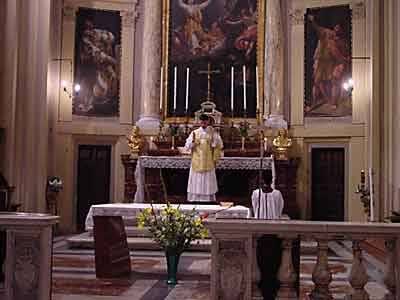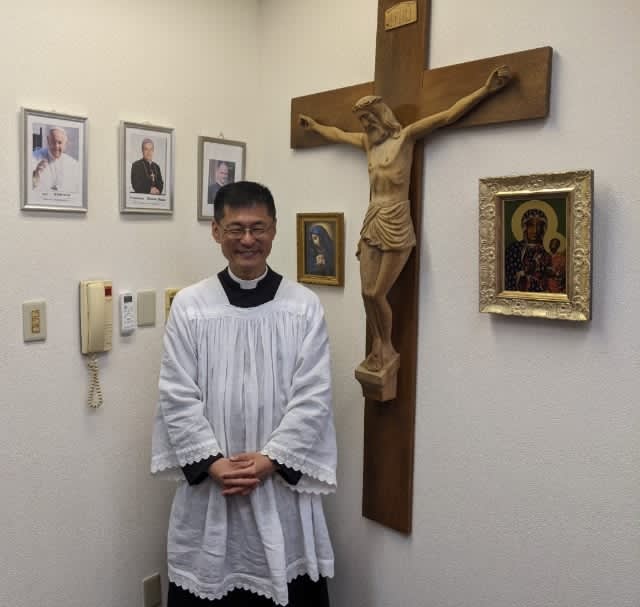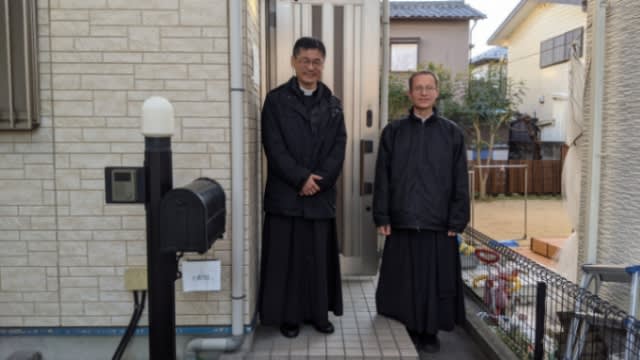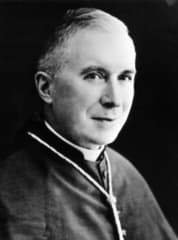In response to the THE DECLARATION CONCERNING “THE SOCIETY OF SAINT PIUS X” by the Bishop of Saitama
In response to the THE DECLARATION CONCERNING “THE SOCIETY OF SAINT PIUS X” by the Bishop of Saitama
February 11, 2021,
Ave Maria!
Your Excellency, the Right Reverend Mario Yamanouchi, Bishop of Saitama,
all beloved brothers and sisters in the Catholic Saitama Diocese,
and all those who would kindly read this message,
Greetings in Our Lord Jesus Christ!
We would like to clarify the following points regarding the 'THE DECLARATION CONCERNING “THE SOCIETY OF SAINT PIUS X”' issued by the Diocese of Saitama on February 9, 2021:
The Society of Saint Pius X (SSPX) is a Catholic Religious Congregation canonically established on November 1, 1970 in the diocese of Fribourg, Switzerland. Since its establishment, it has expanded its apostolate to the whole world in response to the requests of the Catholic faithful.
* The priests of the SSPX are true Catholic priests working freely and independently from the Diocese of Saitama, and Pope Francis gave them faculties to exercise juridical ministries. The Holy Father declared in his Apostolic Letter 'Misericordia et Misera' that the priests of the SSPX have the right to administer the Sacrament of Penance to the Catholic faithful in the whole world. He has also requested the bishops of the entire world for their cooperation in validly administering the Sacrament of Marriage.
* The priests of the SSPX offer the Catholic Traditional Latin Mass. During the Canon. they mention the name of the Holy Father Pope Francis and the name of the local ordinary (in the Saitama Diocese, Bishop Mario Yamanouchi). Pope Benedict XVI declared in his Motu Proprio 'Summorum Pontificum' that all Catholic priests have the right to offer the Traditional Mass, because the Traditional Mass has never been abolished.
* They believe and profess all the Catholic dogmas and Creeds. They fight against the heresies condemned by the Catholic Church.
* The Congregation for the Doctrine of Faith of the Holy See considers indeed that "they [the ministers of the SSPX] have been freed from ecclesiastical punishment" (i.e., not under any sanction).
* Our traditional priests do have a jurisdiction that is neither territorial nor personal but supplied in view of the needs of the faithful in a state of necessity. The sacraments were given by Our Lord as the ordinary and principal means of salvation and sanctification. The Church, therefore, wants the ready availability of these sacraments, especially penance, because the Church's supreme law is the salvation of souls (Can. 1752). The Church supplies jurisdiction, in this case, without passing through the constituted, as it is foreseen in the Code of Canon Law (Can. 144). Whenever the faithful need the graces of penance and want to receive them from priests whose judgment and advice they can trust, they can do so, even if the priests do not ordinarily have jurisdiction. Even a suspended or excommunicated priest can do this for the faithful who ask “for any just cause” in the words of Canon Law (Can. 1335).
Even though the ordinary of Saitama Diocese does not "recommend", however, he does not actually forbid the faithful to join the masses officiated by the priests of the SSPX. He just asks each of the faithful to make the right decisions as a Catholic faithful.
In order to do so, I would like to invite everyone to know more about the Society of Saint Pius X, its history, activities, positions and their reasons. For this end, please see its official website (https://fsspx.org/en or https://sspx.org/en/faqvideos) and to attend our Traditional Mass, which is the pure expression of the Catholic Faith without compromise of ecumenism.
"What earlier generations held as sacred, remains sacred and great for us too, and it cannot be all of a sudden entirely forbidden or even considered harmful. It behooves all of us to preserve the riches which have developed in the Church's faith and prayer, and to give them their proper place." - Benedict XVI.
Fr Thomas Onoda (Priest of the Society of Saint Pius X)
